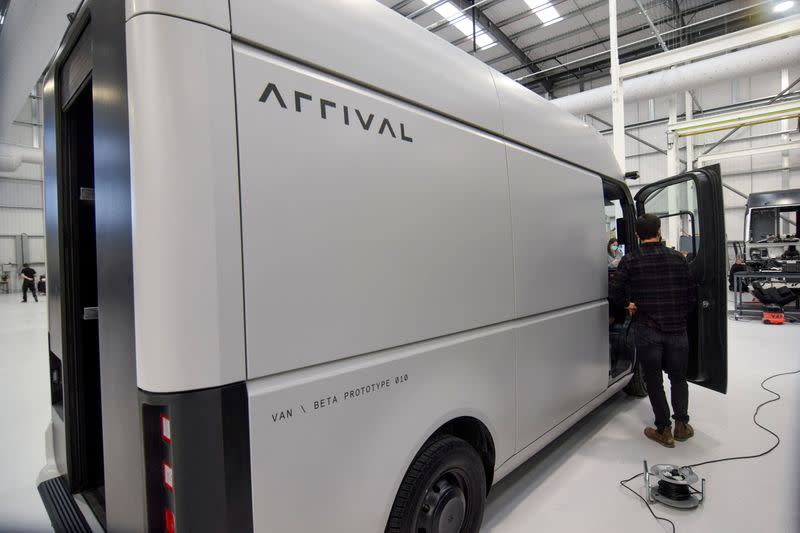EV startup Arrival to focus on U.S. market to rein in costs

(Reuters) -Arrival SA said on Thursday it would restructure its business to focus on the U.S. market, seeking to capitalise on the Inflation Reduction Act incentives and a larger addressable market as the electric-vehicle startup strives to cut costs.
The British company will continue to manufacture some vans in its factory in Bicester, United Kingdom, but said that scaling operations would require significant investment and hence it would focus on the U.S. market.
The Inflation Reduction Act is expected to result in $7,500 to $40,000 in tax credits for commercial vehicles.
U.S.-listed shares of Arrival rose 5.1% to 74 cents after the company said it plans to further "right-size" the organization and cut cash-intensive activities, which could have a "sizable impact" on its global workforce, mostly in the UK.
Arrival, which has lost nearly 90% in stock valuation so far this year, said in July the restructuring could result in up to 30% reduction in its workforce.
It ended the second quarter with about $513 million of cash and cash equivalents and in August established an at-the-market stock sales platform worth about $300 million to raise funds.
In 2020, the company received an order for 10,000 electric vans from United Parcel Service, with the option for an additional order of 10,000 units.
EV startups that promised to disrupt the automotive industry are now scrambling to keep a lid on costs amid supply chain issues and rising raw material prices.
(Reporting by Savyata Mishra and Akash Sriram in Bengaluru; Editing by Vinay Dwivedi)

 Yahoo Finance
Yahoo Finance 